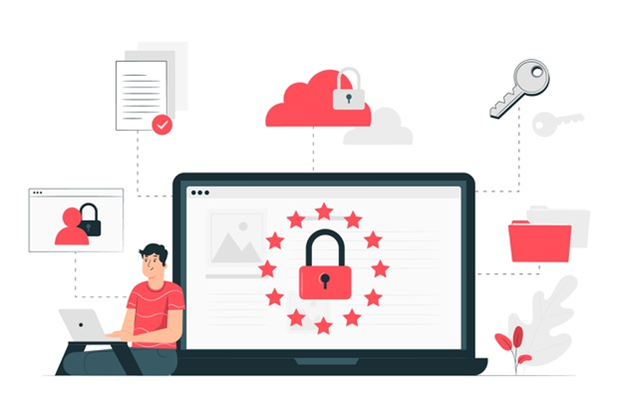How to Protect Sensitive Customer Data
2020-04-27 16:37How to Protect Sensitive Customer Data

How to Protect Sensitive Customer Data
With the rise of the internet, our work styles have changed. More and more companies are now adopting BYOD and remote work policies, letting employees perform tasks using private devices.
Business operations are migrating to the cloud, as it facilitates communication, enhances employee performance, and streamlines many tasks.
Unfortunately, parallel with the rise of the internet, cyberattacks have also been evolving at breakneck speed. In the age where large enterprises like Facebook, Capital One, and Sony are susceptible to online threats, protecting your company’s sensitive data is critical.
Table of Content
Educate Employees
When it comes to online security, employees are your company’s weakest link. In Australia, human error caused an unauthorized data disclosure of more than 270,000 people only in 2019.
Employees need to understand their roles in the organization’s security. That is why you should provide regular cybersecurity training programs and make them mandatory for all staff members.
Make sure they are educated on cybersecurity practices they should implement, especially if they are using private devices at work.
For example, teach them about the importance of creating strong passwords or updating their anti-malware software regularly. Familiarize them with the most common cybersecurity threats that may target them and explain how to prevent and mitigate them.
Have a detailed BYOD policy that would specify what devices can connect to your network, what apps should be downloaded, and what software installation and configuration rules employees should follow.
You should also agree on who owns the data. An employee should know that, if the device gets stolen or lost, the employer can wipe their private devices that are connected to the company’s network.
Classify Customer Data Properly
One of the major cybersecurity mistakes companies make is not knowing where their data resides. You will need to build a detailed data classification policy and organize your files systematically based on their sensitivity.
Classify your data into several categories your employees would easily understand. The first category could be your company’s public, non-sensitive files that would cause minor security issues if stolen.
The second category would include moderate-impact data. Logically, you should focus on protecting your company’s high-impact data – the most sensitive files and systems that might heavily affect your company and customers if compromised.
Migrate to the Cloud
With hackers introducing new, more complex cybersecurity threats, developing an infallible data security strategy is not possible.
In case your sensitive data has been compromised, your goal is to restore your business operations as fast as possible so you can minimize employee productivity issues and prevent notable financial losses. This is where investing in reliable private cloud providers and performing regular data backups is critical for your business.
These enterprise cloud solutions will not only offer you automatic backup strategy and multi-copy storage, but also give you more control over your cybersecurity.
Modern cloud technologies offer you all the benefits of the cloud, while also allowing you to keep full control over your data, which can help you mitigate many cybersecurity risks and protect sensitive customer data.
Encrypt Data to Prevent Breaches
When encrypting customer data, you are making sure that, even if an online hacker intercepts customer data while it is in motion, they won’t be able to extract and misuse it.
Namely, encryption uses an algorithm that encodes the data so it can be opened by certain people. Now, there is a wide array of encryption tools for enterprises, including AxCrypt, Folder Lock, Vera Crypt, and CryptoExpert.
Keep Testing for Cybersecurity Vulnerabilities
Once you identify and classify your data, invest in cybersecurity tools, and start educating your employees, you need to test your data security efforts regularly.
There are many ways to do so. For starters, use commercially-licensed antivirus and anti-malware software and run daily cybersecurity scans. They will establish a culture of security within your organization, as well as inform you of any data security issues in real-time.
You could also consider hiring an in-house ethical hacker or a third-party cybersecurity company. Their goal is to break into your system and network so they can sniff out any coding problems and fix them.
Alternatively, there is a wide range of penetration testing tools you could also use to identify your major data security issues, including John the Ripper, Metasploit, and Wireshark.
Over to You
Never assume that cyberattacks cannot happen to your company. Instead, build a solid data security policy that will prevent unauthorized access to your most sensitive customer data.
For starters, you will need to classify your data to know what data you should focus on. Next, encrypt your data so no one can misuse it and move it to the cloud so you can access it in real-time. You will also need to educate your employees continuously and device equal cybersecurity measures to each staff member.
Finally, keep testing your cybersecurity efforts regularly. Only by approaching your data security holistically to nurture a culture of security awareness.
How do you protect your company’s sensitive data?

